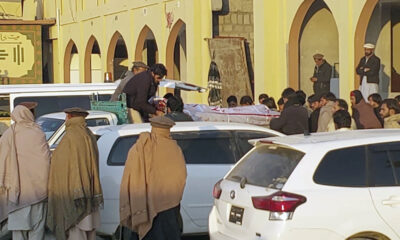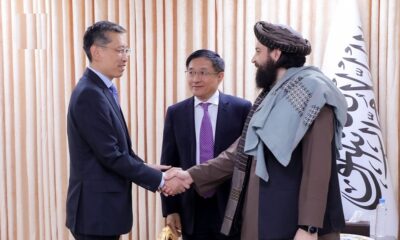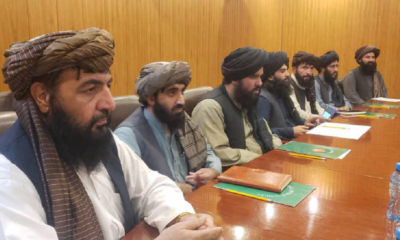Latest News
IEA delegation meet envoys from regional countries on sidelines of Doha meeting
During the meetings, ways to enhance stability and peace in Afghanistan and support the aspirations of the Afghan people for a decent life were discussed, and the importance of the Doha process to achieve the desired progress was emphasized.

Zabiullah Mujahid, spokesman for Islamic Emirate of Afghanistan said in a series of posts on X that he had constructive meetings with special envoys of regional countries and discussed mutual relations and how to further strengthen ties.
Mujahid said he had a constructive meeting with the special representative of Pakistan Asif Durrani and Pakistan’s ambassador and diplomats to Doha.
“We thank them for their hospitality and hope for good and constructive relations for both countries,” Mujahid said.
Earlier, Mujahid said a quadrilateral meeting between Uzbekistan, Afghanistan, Pakistan and Qatar was held in Doha on Monday.
In this meeting, the Trans Afghanistan Railway Project, from Uzbekistan to Pakistan, was discussed.
All parties requested the early start and completion of this project, Mujahid said.
He also stated that he had met with Iranian special envoy Hassan Kazemi Qomi.
This meeting went well, said Mujahid, and that discussions had cenetered around the strengthening of ties and the overall importance of regional connectivity and cooperation.
The special envoy of Qatar’s minister of foreign affairs, Faisal bin Abdullah Al Hanzab meanwhile met separately with Special Representative of the UN Secretary-General for Afghanistan, Roza Otunbayeva; Special Representative of the President of the Republic of Uzbekistan for Afghanistan, Esmatullah Erkashev; and Special Envoy of Switzerland for Afghanistan Albert Grof.
During the meetings, ways to enhance stability and peace in Afghanistan and support the aspirations of the Afghan people for a decent life were discussed, and the importance of the Doha process to achieve the desired progress was emphasized.
Russian ambassador at the UN Vasily Nebenzya meanwhile said: “Taliban [IEA] is de facto authorities on Afghanistan, and we've been saying consistently that you have to recognize this fact and deal with them as such. Because whether you like it or not, but this movement is running the country now. And you cannot simply ignore that.”
Asked about how far Russia is from removing IEA from the sanctions list, ambassador Nebenzya said: “I cannot tell you a definite answer. But I heard some talks about it. But generally speaking, it is good that Taliban [IEA] was finally invited to Doha this time.”
Related stories:
UN keeps identity of Afghan activists at Doha meeting under wraps
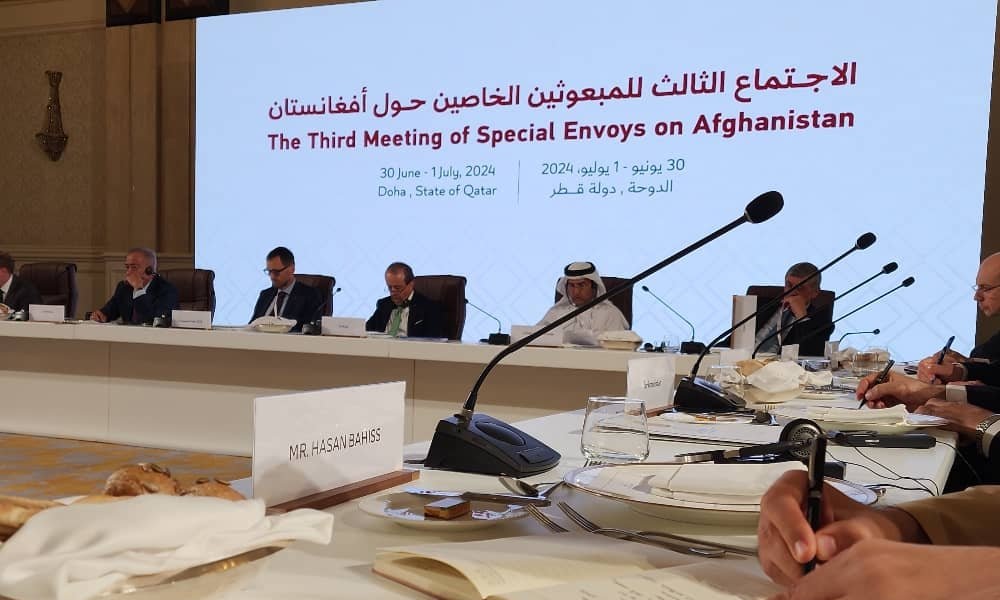
Mujahid sums up Doha meeting, says most countries willing to cooperate with Afghanistan
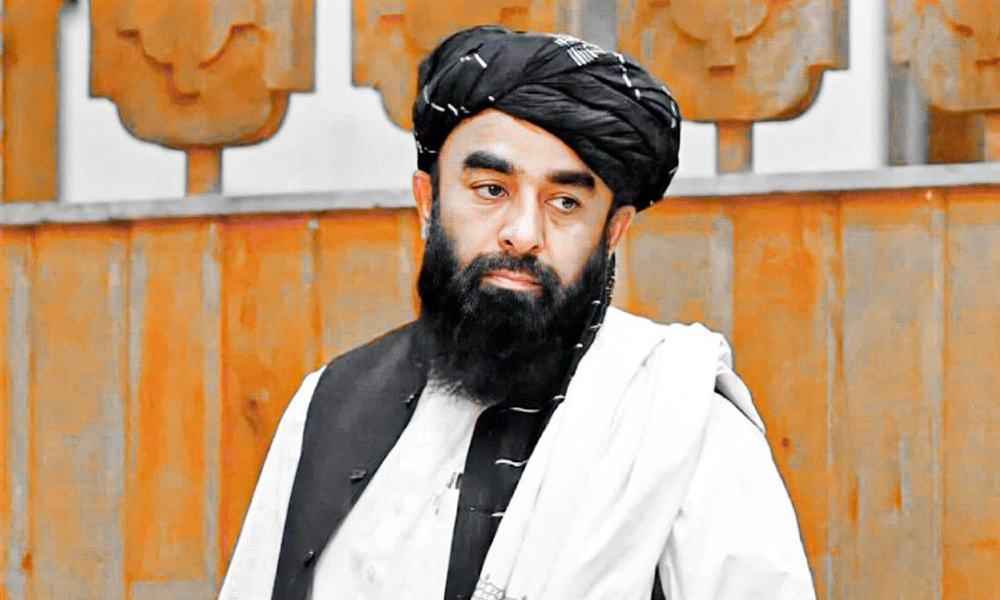
Latest News
China ‘key and partner neighbor’ for people of Afghanistan: Yaqoob Mujahid
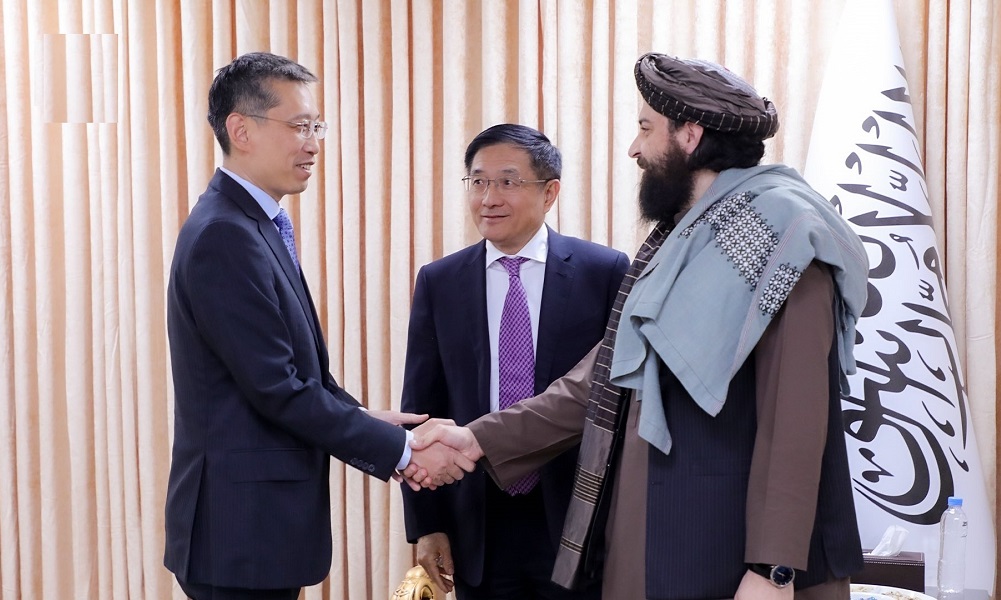
Acting Minister of National Defense Mohammad Yaqoob Mujahid in a meeting with China’s special envoy for Afghanistan Yue Xiaoyong and Zhao Xing, the country's ambassador to Kabul, said that Beijing is a “partner and important neighbor" for the people of Afghanistan, the ministry said a statement.
The statement stated that the two sides discussed economic cooperation, strengthening bilateral relations, borders, investments and other issues.
Yaqoob Mujahid also stressed the commitment of the Ministry of Defense to cooperate in common areas with China.
Latest News
China’s envoy says Beijing eager to solidify relations with Afghanistan
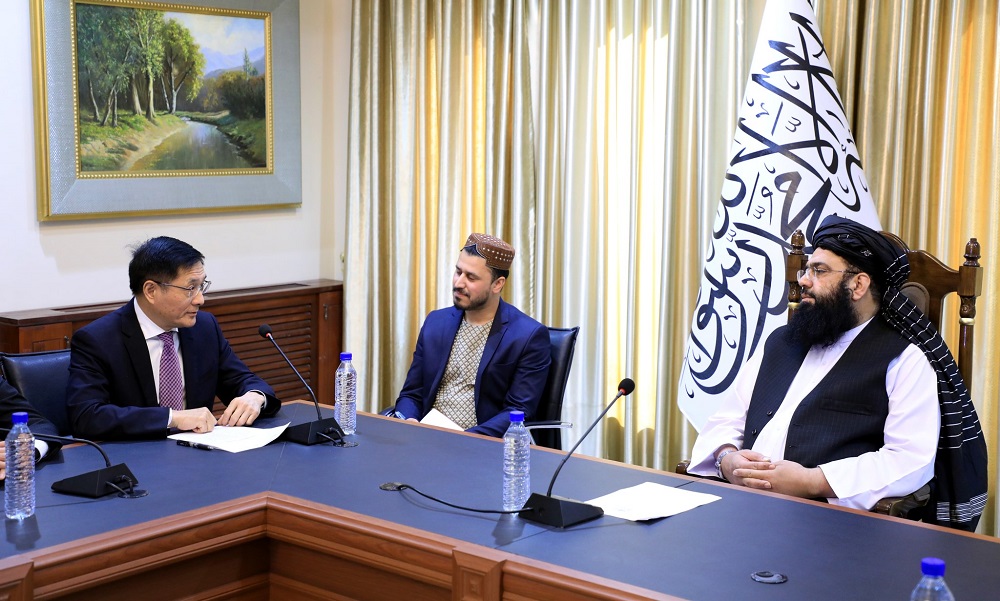
The Political Deputy of Prime Minister Mawlawi Abdul Kabir on Saturday met with China’s special envoy for Afghanistan Yue Xiaoyong and the Chinese ambassador Zhao Xing to Kabul, the deputy PM’s office said in a statement.
At the meeting, Xiaoyong affirmed China’s support for Afghanistan’s position in international forums and expressed China’s readiness to further expand and solidify its relations with Afghanistan.
He underscored China’s ongoing efforts to fortify Afghanistan’s economy, enhance bilateral relations, and deepen cooperation.
Xiaoyong commended Afghanistan’s progress over the past three years and stressed the significance of fostering improved relations and mutual understanding among Afghanistan, Pakistan, and China.
He reiterated China’s respect for Afghanistan’s territorial integrity, cultural values and sovereignty, highlighting China’s commitment to contributing to Afghanistan’s economic advancement through increased investment initiatives.
Meanwhile, Abdul Kabir conveyed his gratitude to Xiaoyong, acknowledging the strong bilateral relations between Afghanistan and China, particularly in trade and economic cooperation, which continue to grow.
He assured that the Islamic Emirate has consistently guaranteed its neighbors and the international community that Afghanistan poses no threat to any nation and has upheld this assurance over the past three years.
He further noted that Afghanistan is transitioning from a prolonged period of conflict and is prioritizing the revitalization of its national economy and the expansion of regional cooperation.
Kabir underscored the critical importance of regional collaboration for achieving stability in the region and affirmed Afghanistan’s ongoing efforts toward attaining economic stability.
Latest News
Khawaja Asif links Pakistan’s security crisis to Afghanistan
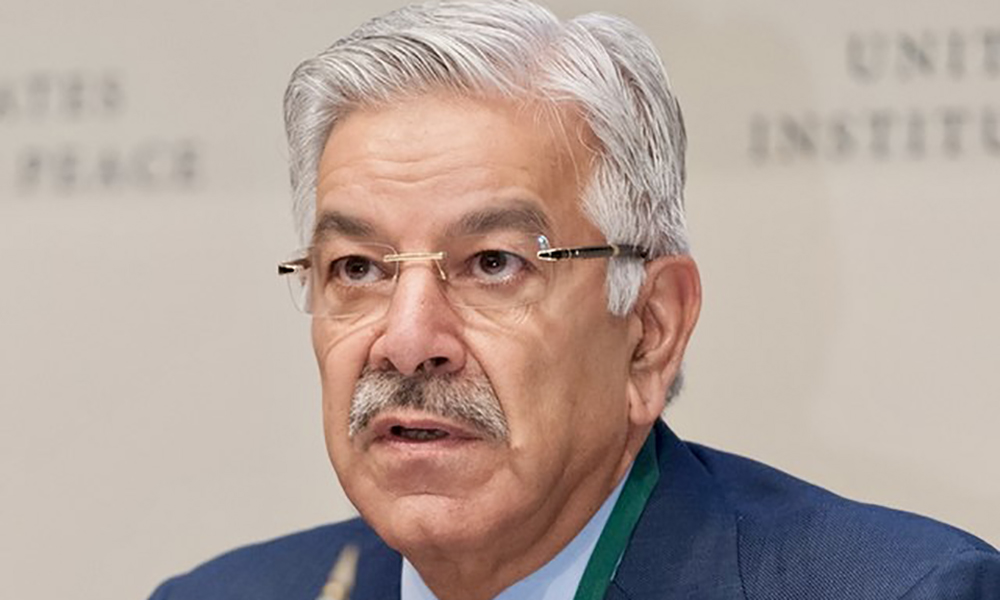
Pakistan's Defense Minister Khawaja Muhammad Asif has claimed that the country’s deteriorating security situation is directly linked to Afghanistan.
Speaking in a press conference on Friday in Islamabad, Asif pointed to the escalation of recent security incidents in different regions of Pakistan and added that the cross-border threat against Pakistan has escalated.
Condemning the use of Afghan territory by terrorist groups, he has claimed that Pakistan's security concerns originate from Afghanistan.
“We stand against terrorism with all our strength. They now carry out their attacks on a daily basis. These invaders enter our soil from outside, they are brought and sheltered in Pakistan. Terrorists are smuggled in from Afghanistan and they are given shelter. They attack our people, both women and children, from the same houses,” said Asif.
The government of Pakistan claims that Tehreek-e-Taliban Pakistan "TTP" is funded and supported in Afghanistan and asked the Islamic Emirate to hand over the leaders of TTP to Islamabad.
Meanwhile, the Islamic Emirate has always rejected such claims and considers Pakistan's security crisis to be the result of the country's weak internal management.
IEA still does not consider the issue of the Pakistani Taliban as a new issue and stressed that this group has been active in Pakistan for many years.
-
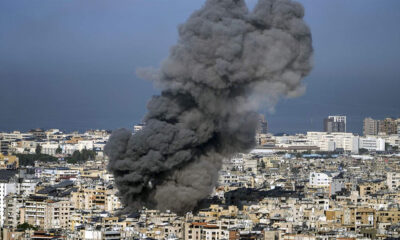
 World5 days ago
World5 days agoLebanon, Hezbollah agree to US proposal for ceasefire with Israel, Lebanese official says
-

 Latest News5 days ago
Latest News5 days agoTajikistan trumps Afghanistan 3-1 in football friendly
-

 Latest News4 days ago
Latest News4 days agoEU marks International Children’s Day, says it supports Afghan children
-
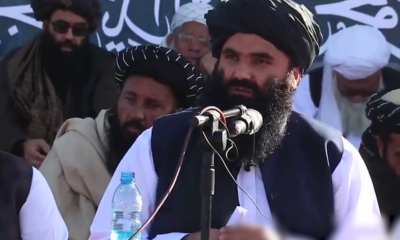
 Latest News5 days ago
Latest News5 days agoAfghanistan wants relations with countries not opposed to Sharia law: Haqqani
-

 Sport3 days ago
Sport3 days agoAriana News to broadcast IPL auction live and exclusively in Afghanistan
-
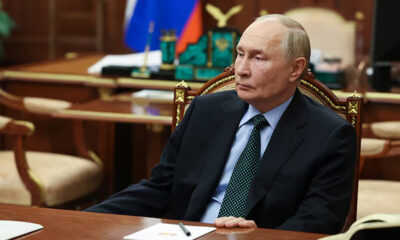
 World5 days ago
World5 days agoPutin issues warning to US with new nuclear doctrine
-

 Latest News2 days ago
Latest News2 days agoU.S. House approves bill on evacuation of Afghan allies
-
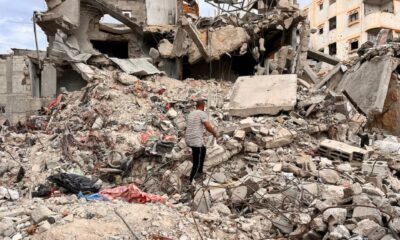
 World3 days ago
World3 days agoUS vetoes UN Security Council resolution on Gaza ceasefire


